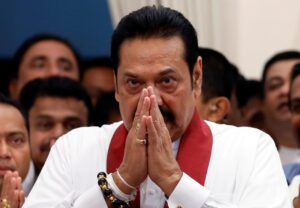 Sri Lanka’s Prime Minister, Mahinda Rajapaksa, resigned on Monday, following weeks of protests against his government.
Sri Lanka’s Prime Minister, Mahinda Rajapaksa, resigned on Monday, following weeks of protests against his government.
The country has been rocked by civil unrest since March, with demonstrations at times turning violent as anger builds over the government’s apparent mishandling of Sri Lanka’s worst economic crisis since declaring independence from Britain in 1948.
A nationwide curfew was imposed after clashes broke out between supporters of the ruling party and anti-government demonstrators in the capital city, Colombo, the police said Monday. The restrictions were announced shortly before Rajapaksa announced his resignation.
Anti-government protesters attacked buses carrying local officials who traveled to Colombo on Monday morning to attend a meeting with the Prime Minister, according to the national police.
At least 151 people were admitted to the hospital following violence at the protests, Colombo National Hospital said.
Rajapaksa’s office released a statement announcing the 76-year-old veteran politician’s resignation, reported Reuters.
“A few moments ago, Prime Minister Mahinda Rajapaksa sent his letter of resignation to President Gotabaya Rajapaksa,” the statement said.
In the letter, a copy of which was seen by Reuters, the prime minister said he was quitting to help form an interim, unity government.
“Multiple stakeholders have indicated the best solution to the present crisis is the formation of an interim all-party government,” the letter said.

UK Bans Education Visas for Nationals Of Four Countries Over Asylum Claims
ECOWAS Set To Form New Force Against Jihadist Threat
War Escalates As Israel Bombs Tehran, Trump Predicts Prolonged Fight
War In Middle East Intensifies As US, Israel And Iran Clash